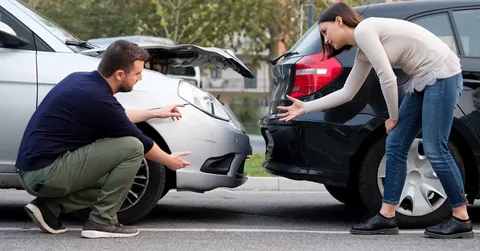If you’re a driver in Houston, staying compliant with vehicle inspection requirements is not just a legal obligation—it’s a matter of safety and performance. Car inspection Houston services play a critical role in making sure your vehicle is roadworthy and environmentally friendly. In this guide, we break down everything you need to know about car inspections in Houston, including requirements, processes, costs, and what happens if your vehicle fails.
Table of Contents
Why Car Inspections Matter in Houston
In a city known for traffic congestion and sprawling roadways, ensuring your car is in good shape helps reduce accidents, emissions, and unexpected breakdowns. The car inspection Houston drivers undergo is part of the Texas Department of Public Safety’s program to maintain consistent safety and environmental standards.
Key reasons car inspections are essential:
- Ensure safety components like brakes, lights, and tires are functioning
- Confirm emission controls meet Texas environmental regulations
- Protect passengers and fellow drivers
- Maintain vehicle value and performance
What Does a Car Inspection Houston Involve?
Car inspections in Houston typically fall into two main categories: safety and emissions. Whether you drive a compact car, SUV, or pickup, your vehicle must pass both (depending on the age and type).
1. Safety Inspection Checklist
- Brakes (system and parking)
- Horn
- Windshield wipers and washers
- Mirrors (rearview and side)
- Headlights, taillights, brake lights, turn signals
- Steering mechanism
- Seat belts and airbags
- Tires and wheel alignment
2. Emissions Testing (for certain areas and vehicles)
- OBD (On-Board Diagnostics) check
- Gas cap integrity test
- Tailpipe emissions (for older models)
In Houston and surrounding counties, emissions testing is mandatory for gasoline-powered vehicles 2 to 24 years old.
Inspection Requirements Based on Vehicle Type
Here’s a quick overview of how requirements differ:
| Vehicle Type | Safety Inspection | Emissions Test | Frequency |
| Gasoline, <2 years | Yes | No | Annually |
| Gasoline, 2-24 years | Yes | Yes | Annually |
| Diesel vehicles | Yes | No | Annually |
| Electric vehicles | Yes | No | Annually |
Where to Get a Car Inspection Houston
Houston has hundreds of certified inspection stations, ranging from full-service auto shops to express lube centers. You can search for a licensed station on the Texas DPS website or look for signage that says “Official Vehicle Inspection Station.”
Tips for Choosing the Right Location:
- Look for high-rated reviews and customer feedback
- Ask about wait times and availability
- Choose locations that offer both inspection and repair services
- Confirm they’re authorized to issue inspection certificates
Cost of Car Inspection Houston
Inspection fees are regulated by the state of Texas. As of the latest update:
- Safety-only Inspection: $7 (collected at the station)
- Emissions & Safety Combo: $25.50 (state portion included in registration fee)
Note: If your vehicle fails, you’ll need to make necessary repairs and return for a re-inspection.
What Happens If Your Vehicle Fails?
If your car doesn’t pass inspection, the inspector will provide a detailed report outlining the issues. You’ll have time to make the necessary repairs and return for a retest, typically without paying the full fee again.
Common reasons for failing include:
- Check engine light on
- Worn-out brake pads or tires
- Faulty lights or indicators
- Emission control system errors
It’s recommended to get a pre-inspection or diagnostic check before heading in for the official inspection, especially if your car is older.
Getting Your Inspection Certificate
Once your vehicle passes, the inspector electronically reports the results to the Texas DMV. You’ll receive a printed Vehicle Inspection Report (VIR) which is needed when renewing your registration.
Make sure to:
- Keep your VIR with your car records
- Renew your registration within 90 days of inspection
- Ensure both inspection and registration are current to avoid penalties
Pro Tips to Pass Your Houston Car Inspection
To make the process smoother, follow these recommendations:
- Check lights, tires, and wipers ahead of time
- Top off essential fluids (brake, windshield, oil)
- Drive your car 15-20 minutes before inspection to warm up the engine
- Fix any dashboard warning lights in advance
Conclusion
Navigating car inspection Houston requirements doesn’t have to be complicated. By understanding the process and preparing your vehicle properly, you can avoid delays, fines, and unnecessary repairs. With annual inspections tied closely to your registration, staying proactive ensures your vehicle remains safe, efficient, and street-legal.
For more information, check with the Texas Department of Public Safety or your local certified inspection station. Safe driving starts with a sound vehicle—get your inspection done on time and drive with confidence.
Also Read This: Budget Travel Guide for Solo Travelers 2025


